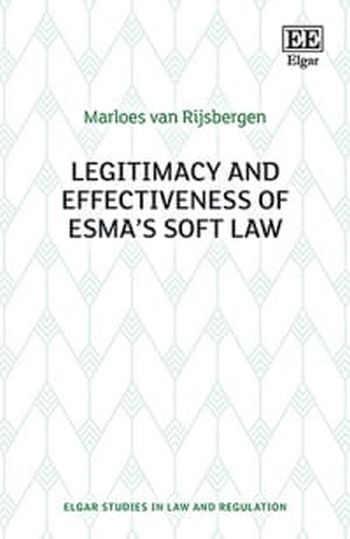
This timely book explores pertinent questions around the legitimacy and effectiveness of EU agencies’ soft law, with a particular focus on the European Securities and Markets Authority (ESMA). It examines the variety of ESMA’s existing and newly granted soft law-making powers, which were intended to deal with the lack of effectiveness of its predecessor but are now called into question due to the ‘hard’ effect of these soft laws.
Built on a combination of theoretical analysis and first-hand practical experience, Marloes van Rijsbergen tests the framework for each category of ESMA’s soft law instruments at each stage of the policy cycle, demonstrating that the framework can be applied to other EU agencies with similar soft law-making powers. This unique framework assesses which procedural and institutional safeguards regarding EU agencies’ soft law would reflect an adequate balancing of both legitimacy and effectiveness concerns.
Comprehensive yet accessible, this book will be a key resource for students and scholars of EU financial law, constitutional law, public administration and governance. Providing an evaluation of the legal nature of ESMA’s soft law acts in the context of the financial sector, it will also prove valuable for practitioners, compliance officers and parties establishing other EU agencies.